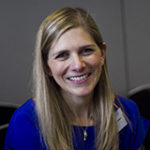 One of the earliest adages drummed into trainees in paediatrics is the advice and warning: “children are not small adults.” The implication is that we cannot simply scale down what we have learned in adult medicine to apply to children, who are different beings entirely with respect to physiology, pharmacology, and psychology. I would suggest, however, that adult clinicians should be reminded more often that adults are, indeed, big children: when we are sick and feel physically and emotionally vulnerable, we are in no less need of love, care, attention, company, and reassurance.
One of the earliest adages drummed into trainees in paediatrics is the advice and warning: “children are not small adults.” The implication is that we cannot simply scale down what we have learned in adult medicine to apply to children, who are different beings entirely with respect to physiology, pharmacology, and psychology. I would suggest, however, that adult clinicians should be reminded more often that adults are, indeed, big children: when we are sick and feel physically and emotionally vulnerable, we are in no less need of love, care, attention, company, and reassurance.
A close friend of mine was recently injured severely in an unwitnessed road traffic accident and was taken to the Emergency Department of a major trauma centre. She received fantastic medical care, but as a paediatrician, I was alarmed to find that it is not unremarkable for patients who are immobile and with only fluctuating lucidity to wait in the ED without ensuring that close family are called upon to offer support.
Having chosen to pursue a career in paediatrics, I was not sorry to leave behind the environment of adult medicine. When children are in hospital, the entire clinical enterprise is focused on making them feel better in every possible way: walls, corridors, lifts, and waiting areas are decorated with murals, lights, and fish tanks and filled with books and entertainment. Clinicians wear badges with large, clear text, and are referred to—at every level of seniority—by first name. White coats are pretty much anathema, uniforms often bright and cheerful, and theatre staff wear colourful hats. Visiting hours are usually unlimited for parents and primary carers; wards and clinics are staffed by play specialists and volunteers who entertain, amuse, and distract children from their pain and distress and, except in an emergency, no one would attempt to take blood or insert a cannula in a conscious child without offering a topical anaesthetic.
I am confident that with a change in culture, attitudes and expectations (and without a huge cost burden) the same could be offered routinely to adults. Why not ensure that we are all surrounded by colour and cheer? Why leave adults to suffer discomfort and distress, often isolated from loved ones by restricted visiting hours? However hard-working, committed and compassionate the staff, a dreary, dull and depressing environment devoid of distraction fails to inspire anyone. If we consider what a person in hospital really needs, can we claim in all honesty to have fully discharged our duty by simply providing an operation, antibiotic, or painkiller?
The healing effects of a positive, uplifting environment are very well documented. For example, in his outstanding book “Being Mortal,” Atul Gawande illustrates multiple cases in which those suffering from illness and/or the declining health and wellbeing of old age live longer, healthier, and happier lives when cared for in more lively and stimulating surroundings.
I hope that the newly re-appointed Secretary of State appreciates how closely health is related to social care: that our physical, emotional, and social wellbeing is inextricably linked. Children may not be small adults, but we would all do well to remember that, at every stage in life, we’re all someone’s daughter, we’re all someone’s son…
Miriam Fine Goulden is a locum Consultant in Paediatric Intensive Care at the Evelina London Children’s Hospital, Guys & St. Thomas’, and also works for NHS England on the National Paediatric Critical Care and Specialised Surgery Review. She was on the FMLM National Medical Director’s Clinical Fellowship Scheme 2015/16. She tweets @finegoulden
Competing interests: None declared.
